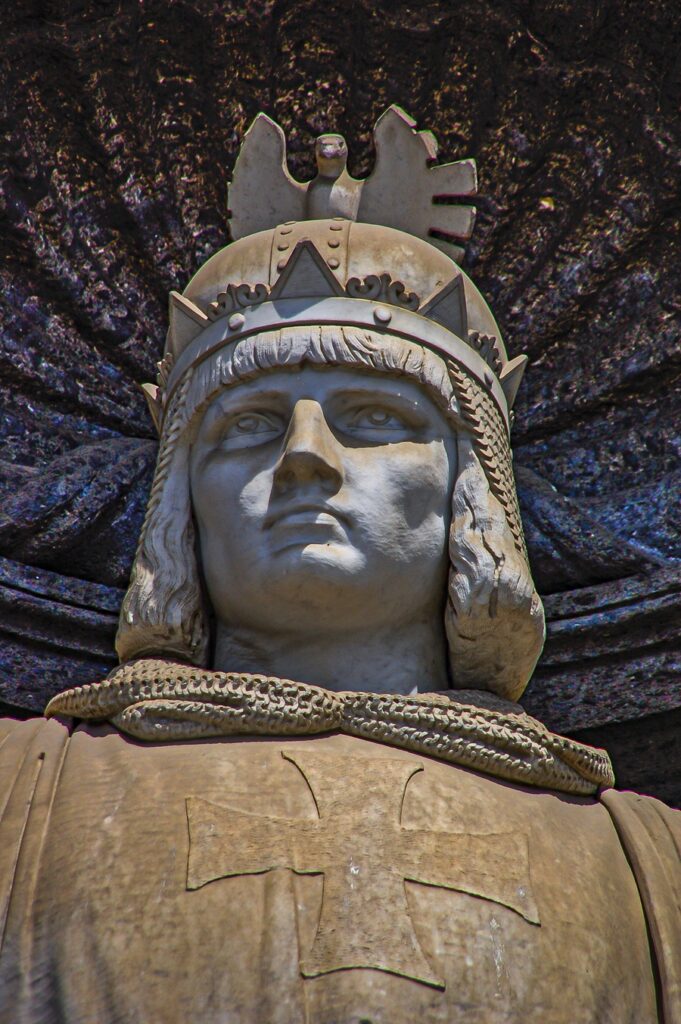Son of Henry VI of Hohenstaufen and Constance of Hauteville, Frederick II was born in Jesi on 26 November 1194. He was King of Sicily (1198), King of Jerusalem (1225) and Emperor (1220). Orphaned at the age of four, he was entrusted to the guardianship of Pope Innocent III before being crowned Emperor of the Holy Roman Empire in 1220 in Rome. His reign was characterised by continuous struggles against the Communes of the Lombard League and numerous clashes against the Papacy. Gregory IX excommunicated him in 1227 because the Swabian continually postponed his departure for the crusade. Having organised the feat, instead of fighting, he negotiated with the Sultan of Egypt, obtaining access to Christian places of worship for pilgrims. In the Kingdom of Sicily, he strove to reform the administration and centralise power, including through the 1231 Constitutions of Melfi. Sensitive to beauty, art and architecture, he founded the University of Naples in 1224 and surrounded himself in his court with the greatest intellectuals of the time (Fibonacci, Pier delle Vigne, etc.) from different cultures and backgrounds: Latin, Provençal, Arab, Byzantine and Jewish. The rebirth of culture was closely linked to the flourishing of the Sicilian school of poetry, which anticipated the dolce stil novo, and of literature in the vernacular, which welcomed poets such as Jacopo da Lentini, Cielo d’Alcamo, his son Manfredi and Frederick himself. Frederick II died in Apulia on 13 December 1250. Today, he rests in the Palermo Cathedral.